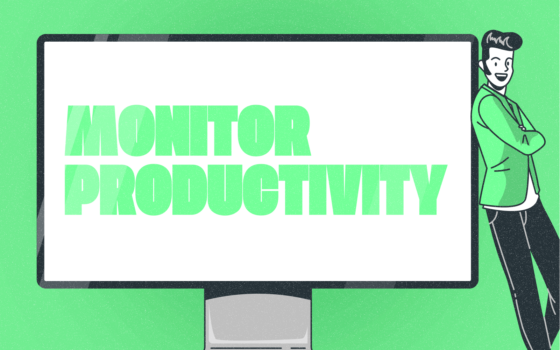HR Ethics
Understanding HR Ethics: A Comprehensive Guide
In the ever-evolving landscape of human resources, ethics plays a pivotal role in shaping organizational culture, employee relations, and overall business success. This glossary article delves deep into the realm of HR ethics, exploring its fundamental principles, key concepts, and practical applications in the modern workplace.
What are HR Ethics?
HR ethics encompass the moral principles and values that guide decision-making and behavior within the human resources function of an organization. These ethical standards are designed to ensure fair treatment of employees, maintain integrity in HR processes, and uphold the rights and dignity of all individuals within the workplace.
At its core, HR ethics revolve around concepts such as fairness, transparency, respect, and accountability. These principles serve as a moral compass for HR professionals, helping them navigate complex situations and make decisions that align with both legal requirements and ethical standards.
The Importance of Ethics in HR
Ethical practices in HR are crucial for several reasons:
- Building trust: Ethical behavior fosters trust between employees and management, creating a positive work environment.
- Legal compliance: Adhering to ethical standards helps organizations stay compliant with labor laws and regulations.
- Reputation management: Ethical HR practices contribute to a positive corporate image, attracting top talent and enhancing brand value.
- Employee engagement: When employees feel they are treated fairly and ethically, they are more likely to be engaged and productive.
- Conflict resolution: Ethical guidelines provide a framework for resolving workplace conflicts in a fair and impartial manner.
Key Principles of HR Ethics
Several fundamental principles form the foundation of ethical HR practices:
1. Fairness and Equality
This principle emphasizes the importance of treating all employees equitably, regardless of their race, gender, age, religion, or any other protected characteristic. It involves creating policies and procedures that promote equal opportunities and prevent discrimination in all aspects of employment, including hiring, promotions, and compensation.
2. Transparency
Transparency in HR processes is essential for building trust and credibility. This includes being open about company policies, decision-making processes, and performance evaluations. Clear communication and accessibility of information help employees understand their rights and responsibilities within the organization.
3. Confidentiality
HR professionals often handle sensitive personal information about employees. Maintaining confidentiality is crucial to protect individual privacy and prevent misuse of this information. This principle extends to all aspects of employee data, from medical records to performance evaluations.
4. Professionalism
Upholding high standards of professionalism is vital in HR. This includes maintaining objectivity, avoiding conflicts of interest, and consistently applying policies and procedures across the organization. Professional conduct also involves continuous learning and staying updated on best practices in the field.
5. Respect for Individual Rights
Respecting the rights and dignity of all employees is a cornerstone of ethical HR practice. This includes recognizing and protecting employee rights such as freedom from harassment, the right to a safe work environment, and the right to voice concerns without fear of retaliation.
Ethical Challenges in HR
HR professionals often face complex ethical dilemmas in their day-to-day work. Some common challenges include:
1. Balancing Organizational and Employee Interests
HR professionals must often navigate the delicate balance between meeting organizational goals and protecting employee interests. This can be particularly challenging during times of organizational change, such as restructuring or downsizing.
2. Managing Diversity and Inclusion
Creating a truly inclusive workplace that values diversity can be challenging. HR professionals must address unconscious biases, promote cultural sensitivity, and ensure equal opportunities for all employees.
3. Handling Conflicts of Interest
Situations may arise where personal relationships or interests conflict with professional responsibilities. HR professionals must be vigilant in identifying and addressing these conflicts to maintain impartiality and fairness.
4. Whistleblowing and Reporting Misconduct
Establishing and maintaining effective channels for reporting unethical behavior or misconduct is crucial. HR must ensure that whistleblowers are protected from retaliation while also conducting fair and thorough investigations.
5. Data Privacy and Security
With the increasing use of technology in HR processes, protecting employee data has become more complex. HR professionals must navigate the ethical implications of data collection, storage, and use while ensuring compliance with privacy regulations.
Implementing Ethical HR Practices
To foster an ethical HR culture, organizations can implement several strategies:
1. Develop a Comprehensive Code of Ethics
Create a clear and comprehensive code of ethics that outlines the organization's values, ethical standards, and expectations for employee behavior. This document should be easily accessible to all employees and regularly reviewed and updated.
2. Provide Ethics Training
Offer regular ethics training for all employees, with specialized sessions for HR professionals. These training programs should cover ethical decision-making, recognizing ethical dilemmas, and understanding the consequences of unethical behavior.
3. Establish Reporting Mechanisms
Implement confidential reporting systems that allow employees to report ethical concerns or violations without fear of retaliation. This could include anonymous hotlines, online reporting tools, or designated ethics officers.
4. Lead by Example
Senior leadership and HR managers should model ethical behavior and decision-making. This sets the tone for the entire organization and demonstrates the importance of ethics in practice.
5. Regular Audits and Assessments
Conduct regular audits of HR practices to ensure compliance with ethical standards and identify areas for improvement. This can include employee surveys, policy reviews, and external assessments.
The Role of HR in Promoting Organizational Ethics
HR plays a crucial role in promoting and maintaining ethical standards throughout the organization. Some key responsibilities include:
1. Policy Development and Implementation
HR is often responsible for developing, implementing, and communicating ethical policies and procedures. This includes creating and updating the code of conduct, anti-discrimination policies, and conflict of interest guidelines.
2. Ethical Recruitment and Selection
Ensuring fair and unbiased hiring practices is a fundamental ethical responsibility of HR. This involves designing inclusive job descriptions, conducting objective interviews, and making hiring decisions based on merit and qualifications.
3. Performance Management
Implementing fair and transparent performance evaluation systems is crucial for maintaining ethical standards. HR should ensure that performance metrics are clear, objective, and consistently applied across the organization.
4. Compensation and Benefits
Developing equitable compensation structures and benefits packages is an important ethical consideration. HR must ensure that pay decisions are based on fair criteria and that there are no discriminatory practices in compensation.
5. Employee Relations
Managing employee relations ethically involves addressing workplace conflicts, handling grievances, and fostering a positive work environment. HR professionals must navigate these situations with fairness, impartiality, and respect for all parties involved.
Ethical Considerations in the Digital Age
As technology continues to transform the workplace, new ethical challenges emerge for HR professionals:
1. AI and Automation in HR
The use of artificial intelligence and automation in HR processes raises ethical questions about bias, transparency, and the role of human judgment. HR must ensure that these technologies are implemented ethically and do not perpetuate or exacerbate existing biases.
2. Social Media and Employee Privacy
The blurring lines between personal and professional life on social media platforms create new ethical dilemmas. HR must balance the organization's interests with employees' right to privacy and freedom of expression.
3. Remote Work and Monitoring
The rise of remote work has led to increased use of employee monitoring tools. HR must navigate the ethical implications of these practices, ensuring transparency and respecting employee privacy while maintaining productivity and security.
4. Data Analytics and Decision-Making
The use of data analytics in HR decision-making raises ethical concerns about privacy, consent, and the potential for algorithmic bias. HR professionals must ensure that data-driven decisions are made ethically and transparently.
The Future of HR Ethics
As the business landscape continues to evolve, HR ethics will remain a critical area of focus. Some emerging trends and considerations include:
1. Global Ethical Standards
With the increasing globalization of businesses, there is a growing need for global ethical standards in HR. Organizations must navigate cultural differences while maintaining consistent ethical practices across diverse locations.
2. Ethical Leadership Development
There is an increasing emphasis on developing ethical leaders within organizations. HR will play a crucial role in identifying and nurturing leadership talent with strong ethical foundations.
3. Sustainability and Corporate Social Responsibility
Ethical HR practices are increasingly being linked to broader sustainability and corporate social responsibility initiatives. HR professionals will need to align their practices with these organizational goals.
4. Mental Health and Well-being
The ethical implications of employee well-being and mental health are gaining prominence. HR will need to address these issues ethically, balancing organizational needs with employee welfare.
Conclusion
HR ethics form the bedrock of effective human resource management and contribute significantly to organizational success. By adhering to ethical principles, HR professionals can create fair, transparent, and respectful work environments that foster employee engagement, productivity, and overall organizational well-being.
As the workplace continues to evolve, HR professionals must stay vigilant and adaptable, ready to address new ethical challenges as they arise. By maintaining a strong ethical foundation, HR can continue to play a pivotal role in shaping positive organizational cultures and driving sustainable business success.
Ultimately, ethical HR practices are not just a legal or moral imperative; they are a strategic advantage in today's competitive business landscape. Organizations that prioritize ethics in their HR functions are better positioned to attract and retain top talent, build strong employer brands, and create lasting value for all stakeholders.


